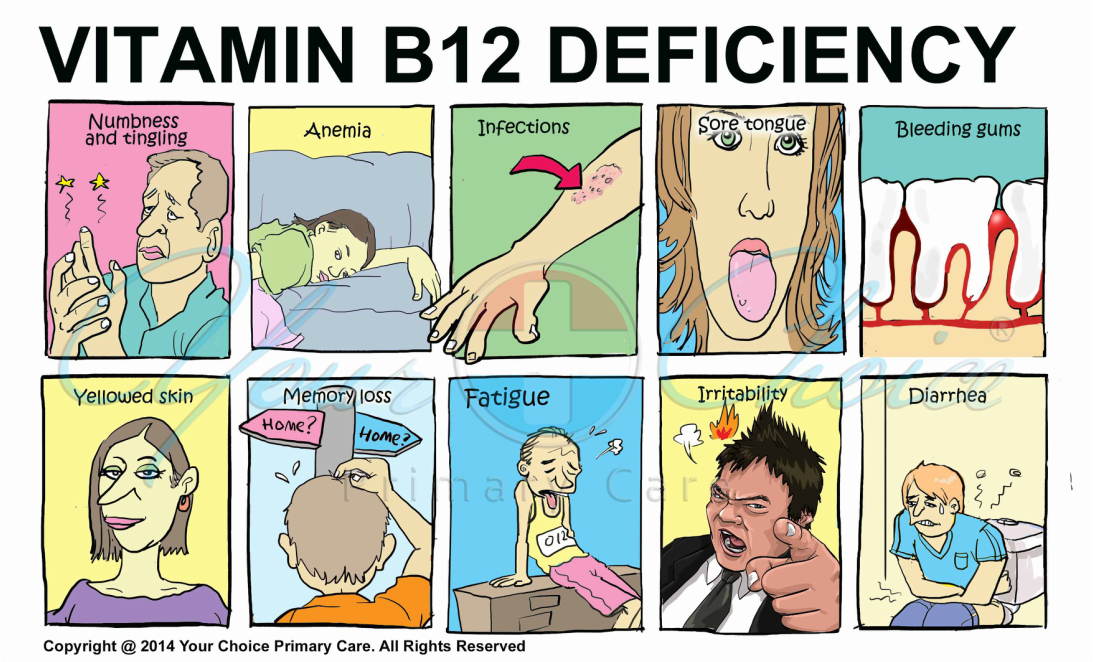The human body needs vitamin B12 to make red blood cells, nerves, DNA, and carry out other functions. Like most vitamins, B12 can’t be made by the body. Instead, it must be gotten from food or supplements.
Some people don’t consume enough vitamin B12 to meet their needs, while others can’t absorb enough, no matter how much they take in. As a result, vitamin B12 deficiency is relatively common, especially among older people. Traditionally, vitamin B12 deficiency has been associated with pernicious anemia, a disease in which the GI tract doesn't properly absorb vitamin B12, leading to decreased red cell counts. But increasingly, research is revealing the importance of vitamin B12 in protecting against a host of health problems.
Some signs and symptoms of Vitamin B12 deficiency are:
- Numbness and tingling
- Anemia
- Infections
- Sore tongue
- Bleeding gums
- Yellowed skin
- Memory loss
- Fatigue
- Irritability
- Diarrhea
When to see a doctor
Make an appointment with your primary care doctor if you have signs and symptoms of vitamin B12 deficiency.
Causes of Vitamin B12 deficiency
- Vegetarian diet. The only foods that deliver vitamin B12 are meat, eggs, dairy products and other animal products.
- Weight loss surgery, which interferes with the body's ability to extract vitamin B12 from food.
- Atrophic gastritis, in which your stomach lining has thinned.
- Pernicious anemia, which makes it hard for your body to absorb vitamin B12.
- Conditions affecting the small intestine, such as Crohn's disease, celiac disease.
- Bacterial over growth, or a parasite
- Heavy drinking
- Immune system disorders, such as Graves' disease or lupus
- Long-term use of acid-reducing drugs. Stomach acid is needed to absorb vitamin B12.
- Babies born to mothers who are deficient in vitamin B12 may also not get enough vitamin B12.
Treatment for Vitamin B12 Deficiency
If problem with absorption is the cause, you'll need to replace vitamin B12 by injection.
If the issue is that you don't eat animal products, you can change your diet or take supplements.
For most people, treatment resolves the problem. But any nerve damage that happened due to the deficiency could be permanent.
If you don't eat animal products, or you have a medical condition that limits how well your body absorbs nutrients, talk to your doctor about taking a vitamin B12 supplement, particularly if you have risk factors for vitamin B12 deficiency.


